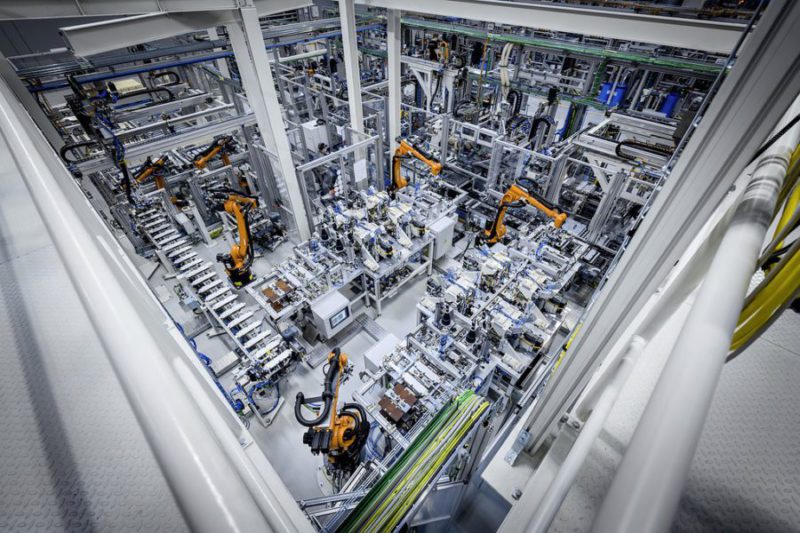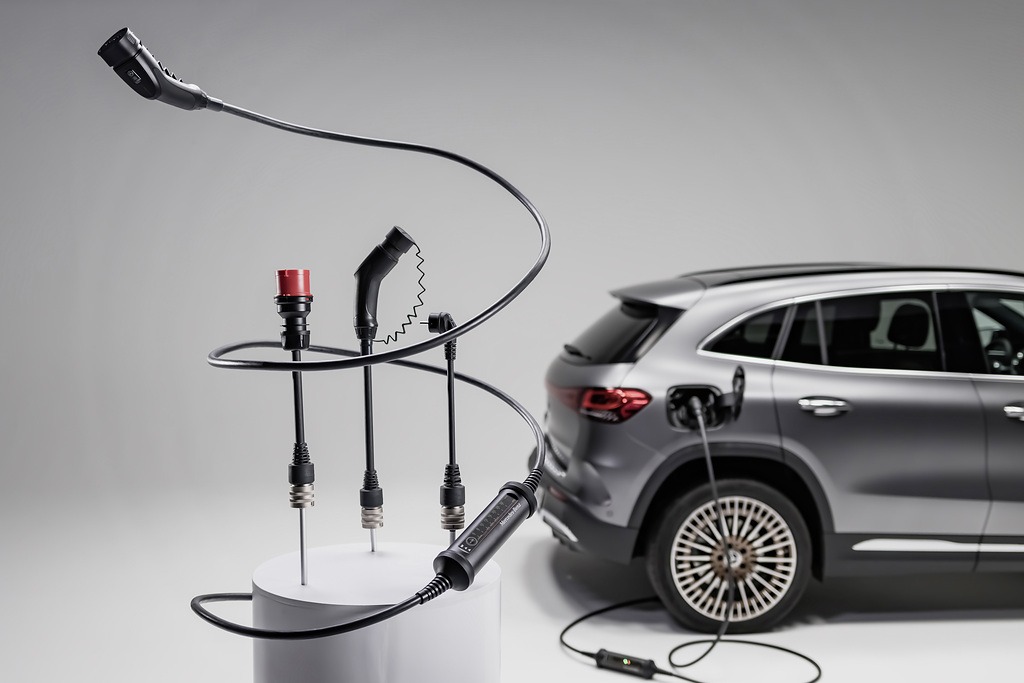Mercedes-Benz’ joined-up thinking on batteries and charging
04 August 2021

Mercedes-Benz is pushing its battery-production capacity and electrically-chargeable vehicle (EV) infrastructure flexibility. These foundational developments will be essential for the company as it builds itself into an electric-only carmaker by the end of the decade.
Intensifying its collaborative efforts with battery specialist Grob-Werke, Mercedes-Benz will develop its localised-manufacturing capabilities of the essential EV component. On the other side of the production line, the OEM has created a charging solution capable of adapting to different sockets.
These advances were announced after Mercedes-Benz Cars confirmed its split from Daimler Trucks. ‘In the future, the car and van business will focus even more on the premium and luxury segment and will consistently utilise its growth and profitability opportunities,’ said Ola Källenius, chairman of the board of management of Daimler and Mercedes-Benz. ‘As the most valuable luxury-car brand, Mercedes-Benz aims for leadership in electric drive and vehicle software.’
Building batteries
Intensifying efforts with long-standing partner Grob-Werke, Mercedes-Benz will develop and construct efficient battery facilities for its global production network. This will include the assembly of both battery modules and packs.
The carmaker plans to increase its capacity and focus on innovative manufacturing technology. This looks to include the development and construction of specialised production facilities in the spirit of what it calls ‘design for manufacturing’. Specifically, this cooperation will target future generations of battery systems used in EQ models from 2025.
‘The global Mercedes-Benz battery-production network is a key pillar of the Mercedes-EQ model offensive, and the foundation of our strategic shift from “Electric First” to “Electric Only”,’ said Jörg Burzer, member of the board of management of Mercedes-Benz overseeing production and supply-chain management.
‘Through our partnership with Grob-Werke, we want to leverage further potential in the area of manufacturing technology in terms of efficiency, digitalisation and sustainability and thereby further expand our battery-production capacity,’ he added.
In the future, EQ batteries will be made via a global network of nine plants in seven locations across three continents. The OEM already builds battery systems in Saxony, Stuttgart, Thailand, China and Poland. Additional locations in Stuttgart and the US are also prepping to start production next year.
Multi-purpose plug
For consumers, Mercedes-Benz is also offering a more adaptable, compact, and portable EV-battery boosting method. Its new Flexible Charging System (FCS) is designed for drivers who need access to various charging points either indoors or outside. This includes household and industrial sockets, as well as public infrastructure and wallboxes. The FCS connects to all these outlets via a ‘plug and play’ system.

Various adapters can be plugged into the FCS’s separation point, where they are automatically detected and the power adjusted accordingly. The integrated Type 2 connector then plugs directly into the vehicle, allowing it to charge at up to 22kW from any AC source. But this can also be manually adjusted if necessary.
As would be expected with an electric-charging adapter, safety looks to have been a top priority during development. Integrated temperature sensors protect against overheating. The system can withstand a temperature range of -30°C to +50°C. It has integrated residual-current circuit breakers, and almost all its components are AECQ-certified. It can be driven over with a weight of up to 1.1 tonnes and is water protected according to IP67 standards, even in the event of temporary submersion.
The FCS also comes equipped with Europe’s widely-used Schuko plug, and adapters for the UK and Switzerland are available separately. Accessories include a five-metre extension cable, a security lock, a wall-mounted holder and a carry case. The retail price in Germany is currently set at €1,225.